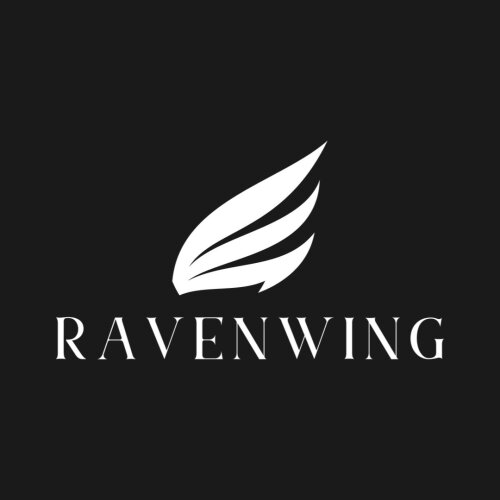Best Business Lawyers in Bang Na
Share your needs with us, get contacted by law firms.
Free. Takes 2 min.
List of the best lawyers in Bang Na, Thailand
Thailand Business Legal Questions answered by Lawyers
Browse our 13 legal questions about Business in Thailand and read the lawyer answers, or ask your own questions for free.
- What business categories are eligible for BOI promotion in Thailand?
- I run a manufacturing company which is registered in Thailand and we are interested in BOI promotion.
-
Lawyer answer
To gain BOI Thailand promotion, your business must fall within one of the eight stated business categories: Agriculture and agricultural products Light industry Services and public utility Chemicals, paper, and plastic Technology and innovation development Electronic industry and electric appliances...
Read full answer - What are the requirements for BOI promotion in Thailand?
-
Lawyer answer
There are details and nuances; however, at the basic level, your company is eligible for BOI promotion if it meets the following criteria: The company is included in one of the eight eligible business categories. The company performs eligible activities...
Read full answer - What benefits can my company enjoy under the Board of Investment (BOI) promotion?
- I am a tech business owner currently based in Europe, but looking to move operations to Asia, I would like to explore and compare options.
-
Lawyer answer
Once the company is BOI promoted, the following basic incentives may be granted: Exemption of corporate income tax Exemption of import duties on machinery Exemption of import duties on raw materials used in R&D Exemption of import duties on raw...
Read full answer
Thailand Business Legal Articles
Browse our 19 legal articles about Business in Thailand written by expert lawyers.
- The Penalties Of Not Filing Your Income Tax Return As A Foreigner In Thailand
- Thailand has strict tax regulations that apply to both residents and non-residents. In recent years, the Thai Revenue Department has updated its policies on how both foreign and locally sourced income are taxed.For foreigners earning income from either of these sources, understanding these requirements has become more important than ever.... Read more →
- Navigating the Legal Landscape of Digital Payments in Thailand
- The rise of digital payments in Thailand reflects the nation’s broader embrace of digital transformation and financial inclusion. From mobile wallets to QR code transactions, digital payment platforms have reshaped how individuals and businesses handle financial transactions. However, these developments also bring about a host of legal and regulatory challenges. ... Read more →
- Appreciating the Legal Aspects of Crowdfunding in Thailand
- With the power of relatively small donations from a lot of people, crowdfunding has become a great method for generating capital for startups, businesses, and even organizations to support their projects. The emergence of crowdsourcing sites in Thailand has matched world patterns and offers a vibrant channel for social influence... Read more →
About Business Law in Bang Na, Thailand
Bang Na, located in the eastern part of Bangkok, is a rapidly growing district known for its commercial vibrancy and diverse mix of local and international businesses. As a key business hub within Bangkok, Bang Na attracts entrepreneurs, small business owners, and major corporations seeking to leverage its growth potential. Understanding business law in Bang Na is essential for anyone operating or planning to operate a business in the area, as legal regulations can directly impact business structures, contracts, employment, taxes, and commercial transactions. Thai business law generally aligns with central Thailand’s regulations, but there may be additional requirements or opportunities due to local economic initiatives or zoning regulations.
Why You May Need a Lawyer
Navigating business in Bang Na can involve complex legal requirements. Here are some common situations where legal expertise is recommended:
- Setting up a new company or branch in Bang Na
- Registering a business or obtaining relevant licenses and permits
- Drafting and reviewing contracts or partnership agreements
- Dealing with labor and employment issues, such as hiring policies, labor disputes, or terminations
- Understanding tax obligations, filing, and compliance
- Protecting intellectual property rights
- Navigating real estate transactions, leasing, or property purchases
- Resolving business disputes, litigation, or arbitration
- Ensuring compliance with local consumer protection laws
- Handling mergers, acquisitions, or restructuring operations
A qualified lawyer can help you avoid costly mistakes, ensure full compliance, and provide guidance tailored to Bang Na's specific legal landscape.
Local Laws Overview
Business law in Bang Na functions under the Thai legal framework, with additional local guidelines administered by Bangkok Metropolitan Administration and related authorities. Key aspects include:
- Company Registration: Businesses must choose an appropriate structure, such as a limited company, sole proprietorship, or partnership, and register with the Department of Business Development.
- Foreign Business Act: Restrictions apply to foreign ownership in certain business sectors. Foreigners may require special licenses or joint ventures with Thai nationals.
- Business Licenses: Specific sectors require local and national licenses, often issued by both the Bangkok Metropolitan Administration and relevant ministries.
- Taxation: Business owners must comply with Thai corporate tax, VAT, and other relevant taxes. Registration with the Revenue Department is mandatory.
- Employment Law: Companies must adhere to Thai labor laws regarding work conditions, employee benefits, and social security.
- Land and Property Use: Special zoning regulations may apply, especially for retail, manufacturing, or logistics businesses. Leases typically run for a maximum of 30 years for foreigners.
Staying updated on changes in business regulations is crucial, especially for compliance and strategic planning in Bang Na.
Frequently Asked Questions
What types of business structures are available in Bang Na, Thailand?
Common business structures include sole proprietorships, partnerships, private limited companies, and public limited companies. The private limited company is the most popular choice due to its liability protection and flexibility.
Can foreigners own businesses in Bang Na?
Yes, but there are restrictions under the Foreign Business Act. Certain sectors are closed or limited to foreign ownership, and special licenses may be necessary. Foreign ownership of land is also restricted, so most foreigners lease property or enter into joint ventures.
What licenses are required to operate a business in Bang Na?
This depends on the type of business. Most businesses need to be registered with the Department of Business Development. Additional licenses may be required by the Bangkok Metropolitan Administration or other regulatory agencies depending on the sector, such as food, education, or import-export.
How long does it take to register a company?
Registering a company in Thailand typically takes between one to four weeks, depending on document readiness, type of business, and completion of additional requirements like licenses or permits.
Are there any special tax obligations for businesses in Bang Na?
Businesses in Bang Na must register for and pay corporate income tax, value added tax (VAT) if applicable, and comply with withholding tax and social security contributions. Regular filings with the Revenue Department are mandatory.
What are the main labor laws for businesses in Bang Na?
Thai labor laws cover minimum wages, working hours, overtime, benefits, annual leave, severance pay, and employment contracts. Firms must register employees with the Social Security Office and comply with employee welfare mandates.
How are commercial disputes resolved in Bang Na?
Disputes can be resolved through negotiation, mediation, arbitration, or litigation in Thai courts. Mediation is sometimes offered by local government offices as an alternative to court proceedings.
How do I protect my intellectual property in Bang Na?
You can register trademarks, patents, and copyrights with the relevant Thai government office. Legal assistance is advised to complete the application and enforcement process correctly.
What are the zoning regulations affecting businesses in Bang Na?
Zoning laws in Bang Na may restrict certain types of businesses to specific areas. It is important to consult the Bangkok Metropolitan Administration to confirm zoning and any special conditions before signing a lease or purchasing property.
Is it necessary to have an office address to register a business?
Yes, an official registered address is required for most company registrations. Virtual offices or serviced offices may be accepted for certain types of businesses but should meet legal requirements.
Additional Resources
If you need more guidance, the following resources can provide useful support:
- Department of Business Development (Ministry of Commerce): Oversees company registration, business licensing, and business structure information.
- Revenue Department: Provides guidelines and assistance on business taxes, VAT, and filings.
- Bangkok Metropolitan Administration (BMA): Responsible for local permits, zoning, and certain licenses.
- Social Security Office: Manages employee registrations and welfare payments.
- Board of Investment (BOI): Assists foreign investors with incentives, permits, and compliance requirements.
- Legal professionals and local business consultants: Can provide tailored advice and document preparation for business operations in Bang Na.
Next Steps
If you are considering starting or managing a business in Bang Na, Thailand, consider the following steps:
- Consult with a qualified business lawyer familiar with Thai law and local Bang Na requirements.
- Gather all necessary documents, including proof of address, director identification, and financial records.
- Determine your company structure and register with relevant governmental bodies.
- Obtain any specific permits or licenses needed for your industry and location.
- Ensure full compliance with local tax laws and regularly review legal obligations as laws can change.
- Meet with a tax consultant or accountant for financial advice and compliance support.
- Stay informed through local business associations or government agencies to remain updated on changes in regulations.
Proactively seeking legal assistance at the outset can help you build a strong, compliant business, reduce risk, and maximize your chances of success in Bang Na.
Lawzana helps you find the best lawyers and law firms in Bang Na through a curated and pre-screened list of qualified legal professionals. Our platform offers rankings and detailed profiles of attorneys and law firms, allowing you to compare based on practice areas, including Business, experience, and client feedback.
Each profile includes a description of the firm's areas of practice, client reviews, team members and partners, year of establishment, spoken languages, office locations, contact information, social media presence, and any published articles or resources. Most firms on our platform speak English and are experienced in both local and international legal matters.
Get a quote from top-rated law firms in Bang Na, Thailand — quickly, securely, and without unnecessary hassle.
Disclaimer:
The information provided on this page is for general informational purposes only and does not constitute legal advice. While we strive to ensure the accuracy and relevance of the content, legal information may change over time, and interpretations of the law can vary. You should always consult with a qualified legal professional for advice specific to your situation.
We disclaim all liability for actions taken or not taken based on the content of this page. If you believe any information is incorrect or outdated, please contact us, and we will review and update it where appropriate.
Browse business law firms by service in Bang Na, Thailand
Bang Na, Thailand Attorneys in related practice areas.










